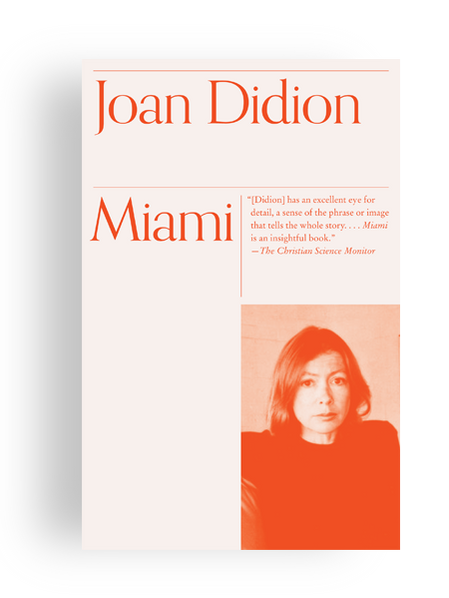A Book of Common Prayer
FICTION
March 15, 1977
Publication Date:
Publisher:
Vintage International
ABOUT THE BOOK
A shimmering novel of innocence and evil: the gripping story of two American women in a failing Central American nation.
Grace Strasser-Mendana controls much of Boca Grande’s wealth and knows virtually all of its secrets; Charlotte Douglas knows far too little. “Immaculate of history, innocent of politics,” Charlotte has come to Boca Grande vaguely and vainly hoping to be reunited with her fugitive daughter. As imagined by Didion, her fate is at once utterly particular and fearfully emblematic of an age of conscienceless authority and unfathomable violence.
A Book of Common Prayer is written with the telegraphic swiftness and microscopic sensitivity that have made Didion one of our most distinguished journalists.
Read an Excerpt
I will be her witness.
That would translate seré su testigo, and will not appear in your travelers’ phrasebook because it is not a useful phrase for the prudent traveler.
Here is what happeend: she left one man, she left a second man, she traveled again with the first; she let him die alone. She lost one child to “history” and another to “complications” (I offer in each instance the evaluation of others), she imagined herself capable of shedding that baggage and came to Boca Grande, a tourist. Una turista. So she said. In fact she came here les a tourist than a sojourner but she did not make that distinction.
She made not enough distinctions.
She dreamed her life.
She died, hopeful. In summary. So you know the story. Of course the story had extenuating circumstances, weather, cracked sidewalks and paregorina, but only for the living.
Charlotte would call her story one of passion. I believe I would call it one of delusion. My name is Grace Straser-Mendana, née Tabor, and I have been for fifty of my sixty years a student of delusion, a prudent traveler from Denver, Colorado. My mother died of influenza one morning when I was eight. My father died of gunshot wounds, not self-inflicted, one afternoon when I was ten. From that afternoon until my sixteenth birthday I lived alone in our suite at the Brown Palace Hotel. I have lived in equatorial America since 1935 and only twice had fever. I am an anthropologist who lost faith in her own method, who stopped believing that observable activity defined anthropos. I studied under Kroeber at California and worked with Lévi-Strauss at São Paulo, classified several societies, catalogued their rites and attitudes on occasions of birth, copulation, initiation and death; did extensive and well-regarded studies on the rearing of female children in the Mato Frosso and along certain tributaries of the Rio Xingu, and still I did not know why any one of these female children did or did not do anything at all.
Let me go further.
I did not know why I did or did not do anything at all.




















